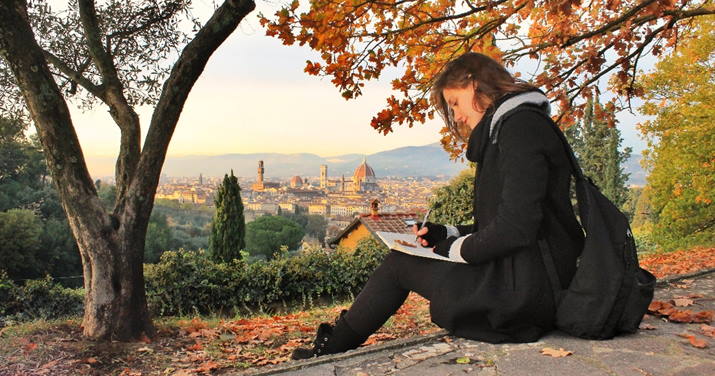
When American students leave to come to Italy, they know for sure that they will learn many things besides Italian: to finally cook pasta that is not overcooked or a coffee that is worthy of being called as such; to eat with pleasure and not just to fill one’s stomach; to rely only on their own strength; to face and come across other habits and other cultures. Maybe some words in dialect.
But one of the teachings that they will certainly take with them after a period in the Bel Paese is that of the art of “dolce far niente” (literally, sweet doing nothing). We Italians are considered masters in this.
We live in a world that always wants us to be hyper-productive, we have been programmed so that in our day there is never a free moment; society always wants us to be energetic, it is impossible to be lazy, we must always find a way to entertain ourselves.
Anyone who has watched the movie "Eat, pray, love" with Julia Roberts knows this: one scene in particular perfectly describes the difference between Americans and Italians: "Americans know entertainment, but they don't know pleasure". And in a way it is true. Americans entertain themselves, they try to find something to do even when they shouldn't, "after a long day at work you spend your time on the sofa, in your pajamas, zapping through TV channels and you think you are there enjoy a moment of relaxation, but that's not the case”, an Italian tells Julia Roberts in the movie.
Enjoying the moment means letting everything else go, dedicating ourselves to ourselves, enjoying and treasuring every moment, recharging ourselves and experiencing the luxury of saying "now I will stop because I deserve it". Every now and then it is necessary to put a stop to this perennial race towards nothingness and learn to enjoy the present, which asks for nothing, except our presence.
All that remains is the pure pleasure of feeling oneself exist: being able to get to this point is a real inner conquest.
When American students leave to come to Italy, they know for sure that when they return home they will remember that they will not have to wait for society, family, friends, work to allow them to take a break, but that - if they want to - they can take it on their own.
After all, Oscar Wilde said it too: “Doing nothing is the hardest thing in the world; the most difficult and the most intellectual”.



